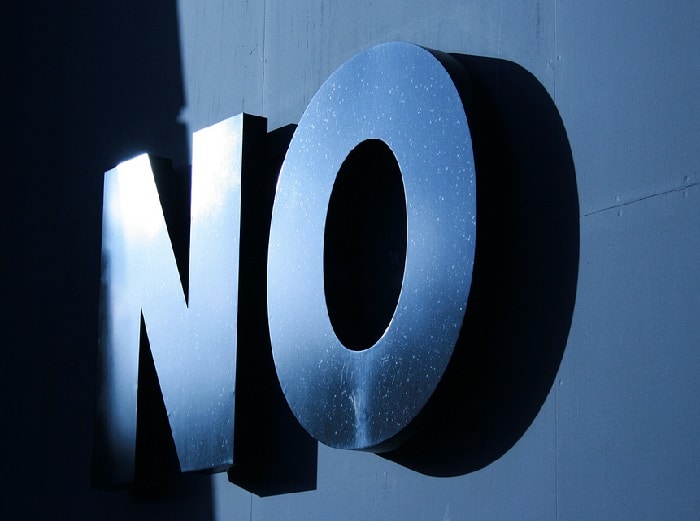You don’t have to accept every single translation job. Out of respect for clients and for your own abilities, you have to learn to say no.
Saying no to a translation project, either when it comes directly from a client or a translation agency, is crucial. Accepting every project that is submitted is a serious mistake which can greatly jeopardize your credibility and your business. In the end, your client should not hold it against you if you don’t accept a translation project, although clients are often unaware that it’s in their best interest when you say no.
A Translation Project Must be Carefully Analyzed
Before accepting a project, the translator’s analysis and the collection of enough information is required to know if he or she is able to give a honest response, by assessing precisely their ability to provide quality work and meet the agreed deadline. In this context, I believe that requesting an extract of the content to translate is essential to make this assessment. Beyond reading an extract, checking if a glossary and terminology are available is important to evaluate if a significant amount of time must be allocated to the terminological research. It may also be wise, when possible, to ask for contextual elements of the translation project, for example screenshots to understand better the purpose of the translation. Once you have collected enough information, you must estimate how much time according to you will actually be needed and compare it to the delivery deadline. Don’t forget to give yourself enough leeway and negotiate deadlines.
Saying No, It Is Respecting Yourself and the Work
Saying yes to everything gives an industrial feeling to the job, a feeling that reduces the translator to a “machine that simply changes the words.” If you are a translator yourself, you will certainly agree that this profession is much more complex than that, otherwise machine translations would have already taken over some time ago. The important thing is to respect yourself and know your limits. How many words per day can I accept without working beyond a reasonable amount of time and without compromising the quality of my work?
Refusing a translation project also means respecting the value of your work, your profession, and by extension, other translators. Unfortunately, translation is too often considered as an activity with little added value, while it’s obviously the other way around, then you want the client to understand this reality. When you will refuse a translation project based on legitimate and well explained reasons, your client will only be pleasantly surprised. They will feel that you have attached importance to them and that they don’t deserve to receive a poor translation. In the long term, it will certainly pay off!
Knowing to Accept Nonetheless Some “Borderline” Projects
Like any rule, there are exceptions, therefore it’s important to know when to take risks and at times accept projects that you would prefer to leave to another translator. Does a long time client have the right to give a very tight deadline for a translation at the last minute? They represent an important part of your business, do they deserve your assistance on this “slightly urgent” project due tomorrow morning, stealing a few hours of your peaceful holiday? This is obviously a matter for consideration and the customer-supplier relationship is a relationship of attraction as well as of mutual respect. You know the saying: “OK for this time, but next time, it will be ‘No!’ …” and keep this promise!
Keep in mind also that a translator is not irreplaceable and that refusing once is fine, a second time might be fine, but the third time, your client will look for someone else with more availability and won’t think about sending you projects anymore.
Translation into English: Chloe Findlay
Discover our translation services.



